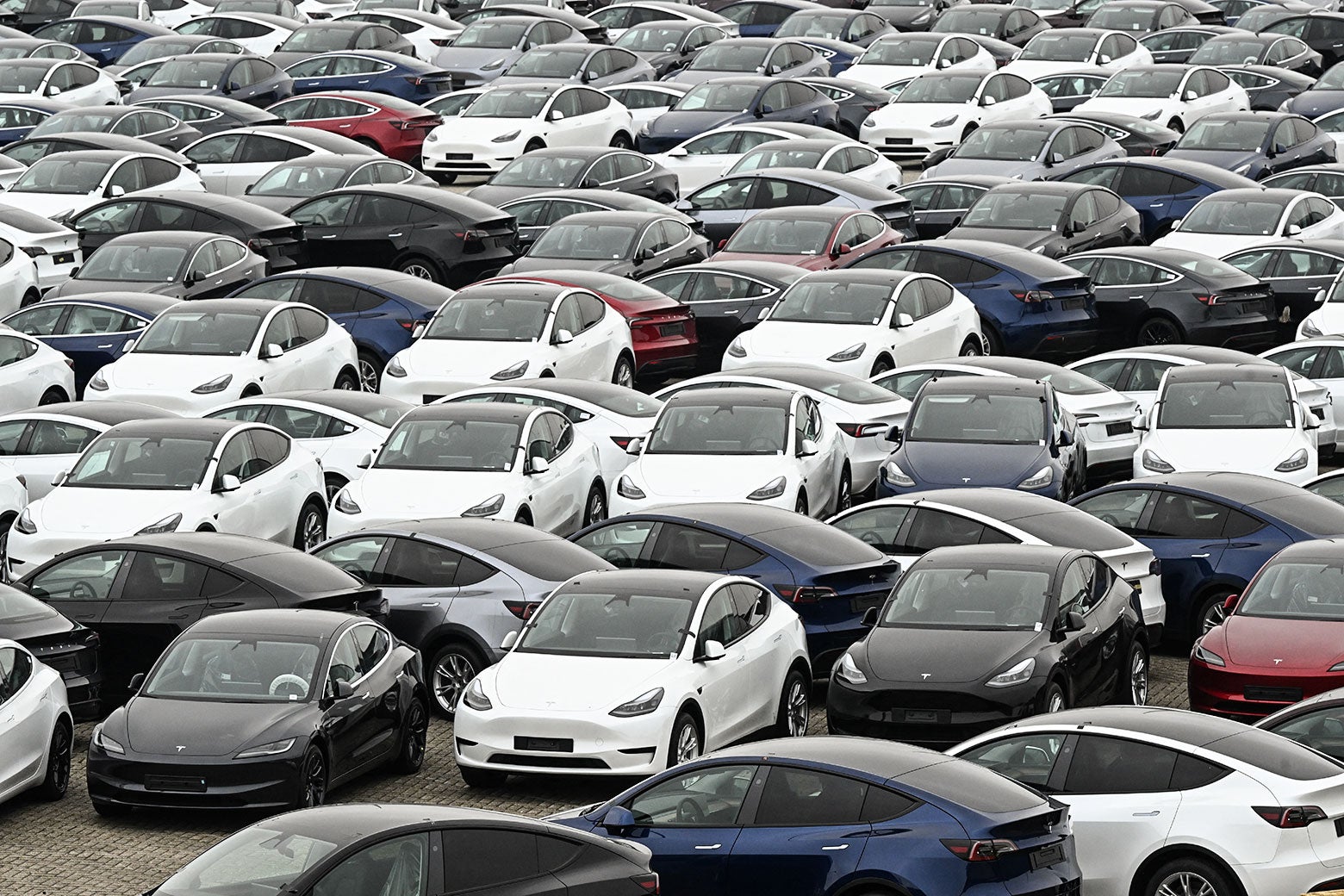Electric Cars Were Supposed to Take Over the World. What the Hell Happened?

🌈 Abstract
The article discusses the current state of the electric vehicle (EV) industry in the United States, highlighting the complexities and challenges it faces. It argues that the narrative of the "death of the electric vehicle" is greatly exaggerated, as EVs are becoming more prevalent across various modes of transportation, from cars and trucks to bikes and scooters.
🙋 Q&A
[01] The Death of the Electric Vehicle Has Been Greatly Exaggerated
1. What are the key points about the current state of the EV industry in the US?
- EV purchases and rentals are still beating records, even if sales growth has dipped slightly
- Tesla, the leading EV manufacturer, is facing challenges, while other automakers are seeing solid numbers
- Concerns over vehicle range and public charger density are encouraging the adoption of plug-in or smaller-battery hybrid cars
- EV ownership is becoming politicized, with liberals and right-wingers having different views on the matter
- E-bike sales are booming, but tariffs may impact the supply of batteries
2. What are the challenges in defining and measuring the success of the EV industry?
- The term "EV" encompasses a wide range of battery-powered transportation options, not just cars and trucks
- There is no consensus on how to prioritize metrics like regional distribution, job creation, or environmental impact
- The government's focus has been more on larger vehicles like cars and trucks, rather than the varied and popular modes of transport
3. How are various interest groups trying to hinder the integration of EVs into the broader economy?
- Fossil fuel interests are fighting regulations that would make it easier to charge EVs at home
- Some state governments are imposing extra fees on EV owners or rejecting funds to expand charging networks
- Hybrid-car innovators like Toyota are lobbying for measures to slow the transition away from internal combustion engines
[02] The Broader Perspective on EVs
1. What are the key points about the broader perspective on EVs?
- The EV transition is not just about swapping gas tanks for batteries, but about multiple converging factors
- The EV sector's longtime leader, Tesla, is facing serious competition from established automakers taking advantage of government incentives
- E-bikes are becoming popular in cities, but there are no federal tax credits for other forms of electrified transportation
- There is a need to expand the imagination beyond car-centric layouts and consider the viability of smaller electrified modes of transport
2. What are the suggestions for promoting true sustainability in the EV industry?
- Encourage a more holistic and circular economy around EVs' potentially harmful effects, such as recycling batteries and reusing metals
- Ensure the economic benefits of electrification impact workers, lower-income buyers, and communities
- Focus on getting more low-cost and easily repairable EV models out there, rather than just adding new features as a sales tactic
3. How does the article argue that the humble EV, in whatever mode, is being made for a world that needs to quickly adjust to the vagaries of climate change?
- The article suggests that both producers and buyers should start acting like the humble EV, in whatever form, is essential for addressing the challenges of climate change.